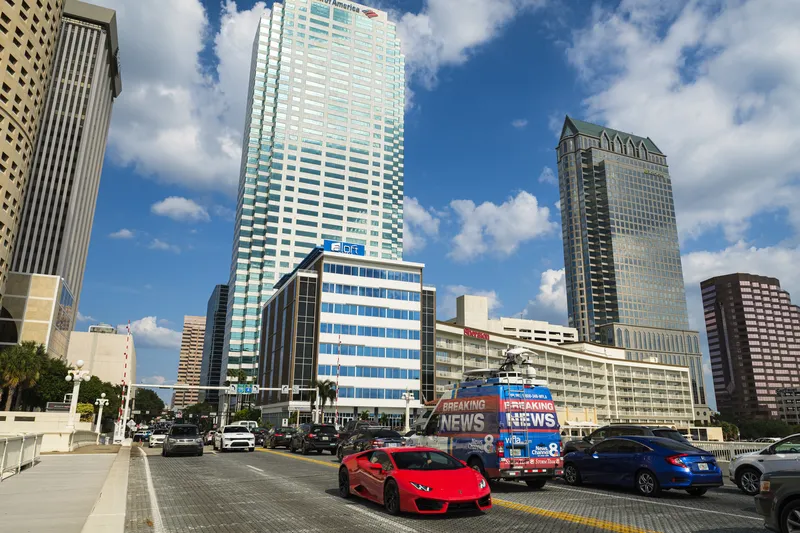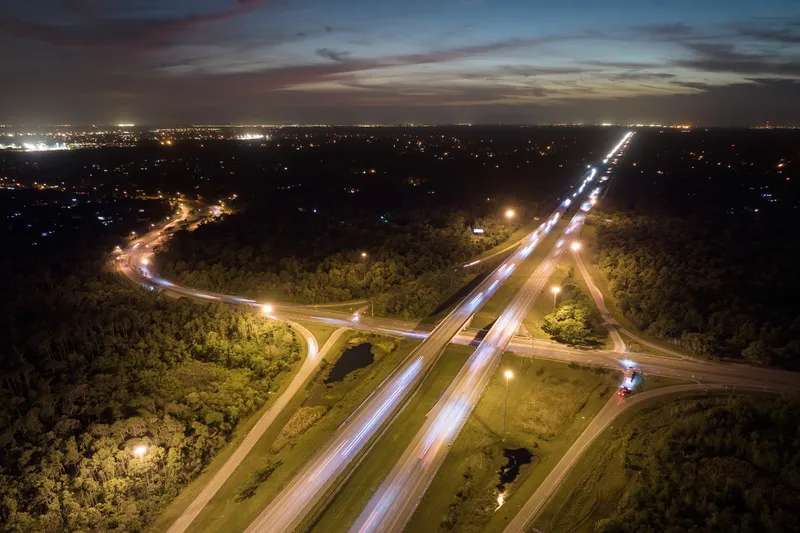The Texas A&M Transportation Institute (TTI), Texas A&M University and the City of College Station are joining forces with seven key private sector companies to help design, develop and test safer, smarter intersections, where vehicles alert drivers to stalled traffic miles before the queues begin – and suggest alternate routes.
They say the ability to detect traffic flow and volume, analyse complex traffic data in real time, calculate multiple route alternatives and send the resulting recommendations to
June 8, 2016
Read time: 2 mins
The Texas A&M Transportation Institute (TTI), Texas A&M University and the City of College Station are joining forces with seven key private sector companies to help design, develop and test safer, smarter intersections, where vehicles alert drivers to stalled traffic miles before the queues begin – and suggest alternate routes.
They say the ability to detect traffic flow and volume, analyse complex traffic data in real time, calculate multiple route alternatives and send the resulting recommendations to vehicles approaching a congested intersection will change the congestion equation. Rather than dealing with traffic choke points on an intersection-by-intersection basis, such technologies promise to address the problem systemically – to dynamically shift traffic patterns on the fly. The convergence of intelligent vehicle systems, traffic monitoring technologies, and active roadway infrastructure will shift mobility management from a reactive strategy to a dynamic, real-time system.
The Smart Intersections Initiative is the first of several promising developments coming out of the Transportation Technology Conference sponsored by TTI and held last month at the Bush School’s Annenberg Conference Center in College Station, Texas.
Several key players in transportation-related automation, among them6692 Econolite Group, EDI, 73 Iteris, 772 McCain, MoboTrex, Savari and 189 Siemens, have indicated preliminary interest in the initiative. Talks are underway with others.
The project will be based at The Texas A&M University System’s new RELLIS campus.
The research will be conducted in three distinct environments: laboratory; a controlled environment featuring several intersections constructed at the RELLIS campus; and ultimately at live intersections in the City of College Station.
Work will centre on practical application of evolving automated and connected vehicle and infrastructure technologies. The goal is to streamline signal operations, enhance safety and improve overall mobility.
They say the ability to detect traffic flow and volume, analyse complex traffic data in real time, calculate multiple route alternatives and send the resulting recommendations to vehicles approaching a congested intersection will change the congestion equation. Rather than dealing with traffic choke points on an intersection-by-intersection basis, such technologies promise to address the problem systemically – to dynamically shift traffic patterns on the fly. The convergence of intelligent vehicle systems, traffic monitoring technologies, and active roadway infrastructure will shift mobility management from a reactive strategy to a dynamic, real-time system.
The Smart Intersections Initiative is the first of several promising developments coming out of the Transportation Technology Conference sponsored by TTI and held last month at the Bush School’s Annenberg Conference Center in College Station, Texas.
Several key players in transportation-related automation, among them
The project will be based at The Texas A&M University System’s new RELLIS campus.
The research will be conducted in three distinct environments: laboratory; a controlled environment featuring several intersections constructed at the RELLIS campus; and ultimately at live intersections in the City of College Station.
Work will centre on practical application of evolving automated and connected vehicle and infrastructure technologies. The goal is to streamline signal operations, enhance safety and improve overall mobility.










